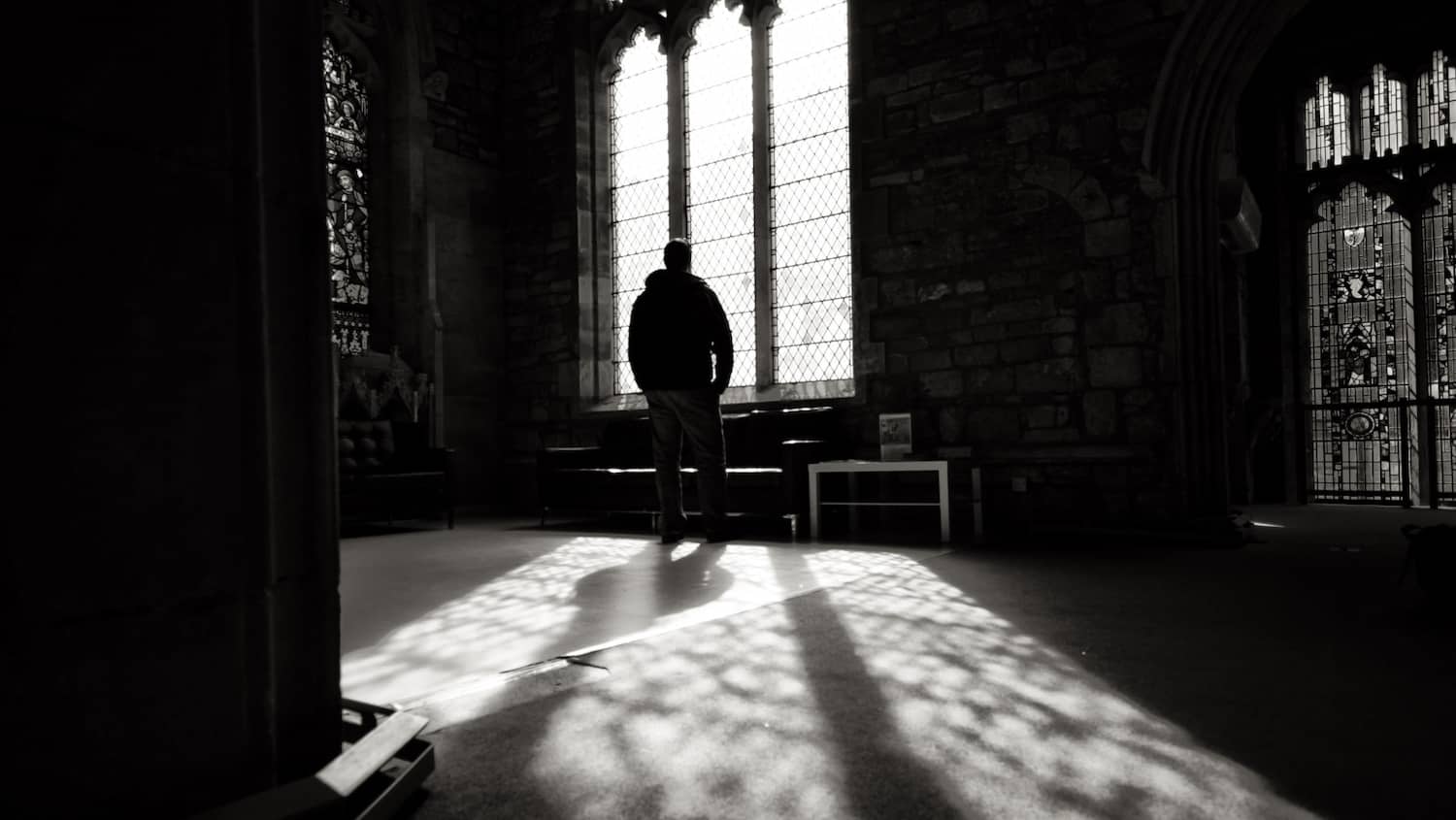Our readings from Malachi (3:19-20) and the Gospel of Luke (21:5-19) are rather scary. So, apparently, we have some more fear to add to the fears that we are already facing and that we are fed by the media.
Speaking of fear, about 20 years ago, one of the women in my RCIA program held in a town in Ohio, shared a beautiful phrase that I, in turn, must share with you: a life led in fear is a life led believing in a power stronger than God.
The point that these readings are trying to drive home is this: we should be convinced, at gut level, viscerally, that our lives are unfolding constantly under the watchful eye of our Almighty Father. This conviction though runs the risk of remaining mostly fragile throughout our life. New sources of apprehension, new threats can put our shaky faith to the test. It is important therefore to realize where our fears originate and why they should be overcome.
Fears originate in our past. Something traumatic, painful, horrific from the past, ours or of someone close to us, has the power to poison our present and make us wonder if in our future there might be one or several dreaded repeats. Our energies would, then, be spent warding off future threats and creating systems of protection or, at least, an exit route. We could not rest until a degree of peace of mind is attained either by preemptive measures or by flight. If that cannot materialize we would crumble and risk self-destruction.
It should not be surprising, therefore, to find out that the most reoccurring refrain in the Bible is: “Do not be afraid.”
It cannot be otherwise because the Bible is a collection of “love letters” from our God. Israel of old and the Church in the New Testament both have the answers we need to allay our fears. For the Bible fear occurs in people of little or no faith, in people who fail to see that their lives, lived in the presence of God, are freed of the past and the future tenses; they are lives lived in the present,… the only “tense” that God has.
To live in the “present tense” is living in trust, hope and, especially, in expectation of something astonishingly beautiful even if, at times, it might be preceded by trials and serious tests. To live in the “present tense” is possible only for those who realize that the pain and the ugliness and the torments of the past were the result of fearful and panicky reactions of people of little or no faith, of people who failed to see their Heavenly Father directly involved in their lives. Ultimately, to live in the “present tense” proves that one can bear witness to the power of faith in our Almighty God; can bear witness to His presence, protection, guidance and care; can bear witness to the power of loving and joyous serving which is possible after having overcome one’s most deep-seeded fears.
Luke’s audience lived in the aftermath of the destruction of the Temple of Jerusalem. The horrors and shock that our nation experienced on September 11, 2001 pale by comparison to that event. The destruction of the Temple (one of the Seven Wonders of the World) shattered the very fabric of the Jewish nation and threw all Jews and Christians alike) into a spiral of darkness and despair.
The prophet Malachi had predicted similar horrific events almost 500 years earlier. And, even back then, he had separated people facing those very serious tribulations into two groups: the proud and the evildoers in one group and the people called to live in God’s “present tense” in the other group.
Let me try to break it to you gently: God wants us to be in the second group. Yes, read the following: “but for you who fear my name, there will arise the sun of justice with its healing rays.”
Of course, we know that the sun of justice is Christ. That is comforting. However, you could tell me: “Here, too, we see mentioned the word fear. Are we trading one type of fear for another?” The Church is sharing this page of the Gospel with us mindful that Jesus, victorious over the most frightening enemy that there is, death itself, desires to replace our apprehensions and fears with a resolve to bear witness to him: “It will lead to your giving testimony.”
What happened on September 11, the acts of terrorism that have plagued our world since, several genocides fomented by ancient hatreds, death and destruction striking close to us and our way of life adjusted in the wake of so many frightful events can, actually, become opportunities to give witness to the presence and action of Almighty God in us and around us. Even misleading claims, prospects of persecution, painful separations, wars, earthquakes, famines, plagues, whatever alarming, mentioned in today’s gospel passage, might occur, are all opportunities to bear witness to God, to His power, to His action.
This is what it means to fear the name of the Lord.
There is good fear and bad fear. Fear that can paralyze us should be replaced with fear for the name of the Lord. Fearing God’s name means that we realize how our God is actually much, much mightier, more majestic, more caring, more loving than we can possibly fathom. Fearing God’s name entails living in His presence, mindful that we will never, ever, be able to grasp the extent of His power, of His protection, of His love. Fearing His name means also fearing our inability to expand properly, adequately, the horizons of our expectations; and dare to ask Him what we would never ask even a most powerful human being; all this done in full awareness of our unworthiness and in spite of our sinfulness.
Thus, we shall persevere, we shall bear witness to our God as we go about our duties, as St. Paul (2 Thes 3:7-12) suggests. We work, we keep busy, we avoid minding other people’s business (unless it is done with the intent of helping them), and avoid gossiping, and spreading rumors; our life totally taken by trusting in the Lord, and by loving and serving each other in our needs.
Free from bad fear we wait, expectantly, with certainty, for the Sun of justice to open for us the doors of his Kingdom. This is precisely the type of witnessing that He expects of us.








